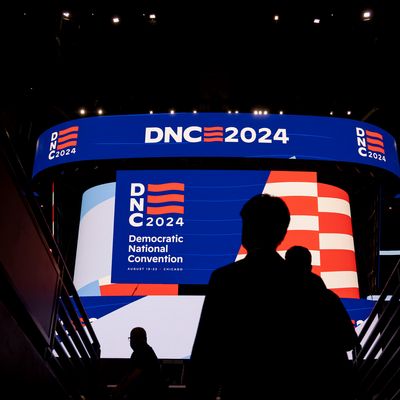
In the endless hypotheticals about what Democrats would do if President Biden withdrew from the presidential race, it was often assumed that the party faces a binary choice: It could allow Biden to “anoint” a successor — presumably Vice-President Kamala Harris — or it could hold an “open convention,” in which multiple candidates might compete with the result not entirely preordained.
Recognizing that the precedents for a convention with no front-runners at all (e.g., the 103-ballot ordeal Democrats went through exactly a century ago in New York that produced a nominee who lost badly in the general election) are not exactly encouraging, “open convention” fans have laid out all sorts of complex scenarios for identifying candidates and minimizing chaos, some revolving around a forced resolution via ranked-choice voting by delegates.
All this spitballing was based on the simple fact that Democratic conventions can largely make their own rules with delegates not legally bound to support primary winners, particularly if (as in most “open convention” scenarios) the winner of all but one primary, Joe Biden, withdrew from the race, which would eliminate even a moral obligation of delegate support for any one candidate.
But what observers often miss is that under the existing rules, the convention will already be “open.” Any candidate willing to run who can identify 300 delegates (no more than 50 from any one state) supporting them can have her or his name placed in nomination. This would be true for either a “virtual roll call” (what the DNC is currently planning for the week after August 1) or for a traditional convention roll call.
The flip side of this open process is important, too: Biden’s stepping aside means there is no mechanism for him to transfer support to Kamala Harris or anyone else. If Democrats think his endorsement of Harris as the nominee is a bad idea and someone’s willing to go public with a challenge and can amass 300 delegates, the nomination could go elsewhere. So you don’t really have to invent some elaborate new process to hold an “open convention”; the 300-delegate requirement operates as both a window for competition and a limitation on chaos.






























